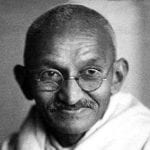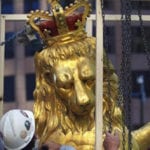 Mysteries
Mysteries  Mysteries
Mysteries  History
History 10 Surprising Stories About the Texas Rangers
 Humans
Humans 10 Philosophers Who Were Driven Mad by Their Own Theories
 Miscellaneous
Miscellaneous 10 Video-Game-Worthy Weapons and Armors from History
 Weird Stuff
Weird Stuff 10 Psychics Who Accurately Predicted Wartime Events
 The Arts
The Arts 10 Pieces of Art Inspired by a Broken Heart
 Health
Health 10 Science Fiction-Sounding New Medical Treatments
 History
History 10 Surprising Facts About the Father of Submarine Warfare
 Space
Space Ten Astonishing New Insights into Alien Worlds
 Weird Stuff
Weird Stuff 10 Bizarre Summer Solstice Rituals Still Practiced Today
 Mysteries
Mysteries Top 10 Haunting Facts About the Ghost Ship MV Alta
 History
History 10 Surprising Stories About the Texas Rangers
 Humans
Humans 10 Philosophers Who Were Driven Mad by Their Own Theories
Who's Behind Listverse?

Jamie Frater
Head Editor
Jamie founded Listverse due to an insatiable desire to share fascinating, obscure, and bizarre facts. He has been a guest speaker on numerous national radio and television stations and is a five time published author.
More About Us Miscellaneous
Miscellaneous 10 Video-Game-Worthy Weapons and Armors from History
 Weird Stuff
Weird Stuff 10 Psychics Who Accurately Predicted Wartime Events
 The Arts
The Arts 10 Pieces of Art Inspired by a Broken Heart
 Health
Health 10 Science Fiction-Sounding New Medical Treatments
 History
History 10 Surprising Facts About the Father of Submarine Warfare
 Space
Space Ten Astonishing New Insights into Alien Worlds
 Weird Stuff
Weird Stuff 10 Bizarre Summer Solstice Rituals Still Practiced Today
10 Weird Things People And Businesses Have Tried To Trademark
Trademarks are supposed to be unique. However, since there is no agreed definition of what we would consider unique, people and businesses have attempted trademarking the weirdest of things. We mean they’ve actually tried to trademark colors, smells, and even the shape and sound of a motorcycle. Why would a company even think it owns the shape of a motorcycle?
Whatever their intentions, this list proves that many businessmen and corporations wouldn’t hesitate to trademark actual people if they got the opportunity. It is an interesting read.
10 SEAL Team Six
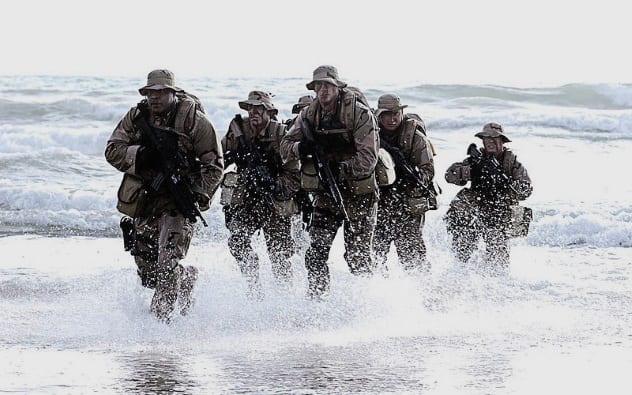
On May 2, 2011, operators from the US Navy’s SEAL Team Six raided compound in Pakistan, killing Osama bin Laden. Two days later, Disney applied for a trademark on the SEAL Team Six name. Disney planned to use the name for a TV show it planned to make about the US Navy SEALs.
People were outraged when they discovered what Disney was doing. The fact that Disney’s application included things like Christmas stockings and snow globes did not help matters. The US Navy submitted an application to trademark “Navy Seals” and “Seal Team,” forcing Disney to abandon the effort.[1]
9 Motorcycle Engine Sound
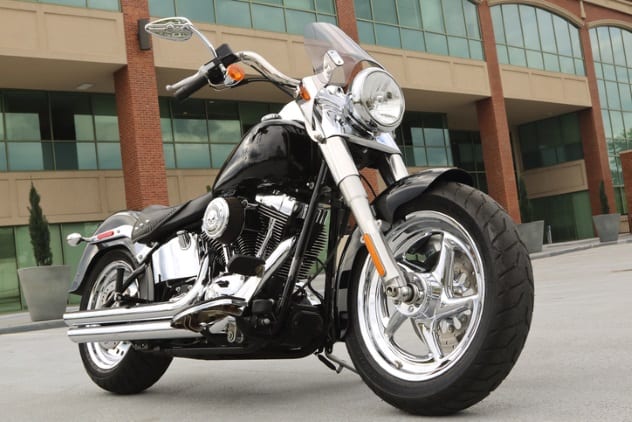
We know it sounds weird, but it is possible to trademark a sound. Two popular sounds that have been trademarked are that of the MGM lion and the three-note sequence used by NBC. And one popular noise that has been rejected for a trademark is the sound of the V-twin engine used in motorcycles.
Motorcycle maker Harley-Davidson Inc. probably thought the sound was unique to their V-twin engines at the time they applied for the trademark. Besides the sound, Harley-Davidson also attempted trademarking the shapes and curves of several motorcycle parts and even an entire motorcycle.
While awaiting its trademark, Harley-Davidson spent huge amounts of money on taking other motorcycle makers to court over the sounds and shapes of their bikes. However, in June 2000, it wisely withdrew its trademark applications before the US Patent and Trademark Office (USPTO) could either confirm or reject them. A spokesperson said Harley-Davidson was no longer interested in spending huge sums in court when it was unsure whether it would even get the trademark.[2]
8 The Smell Of Strawberries

In 2005, French company Eden Sarl lost its attempt to trademark the smell of strawberries. Eden Sarl planned to brand the smell for exclusive use in its soaps, cream, clothes, and other goods its produced. It applied for a trademark with the European Union Trademark Agency, which rejected its application.
Eden Sarl took the case to a European Union court, where it claimed it could legally trademark the scent of strawberries because all strawberries smelled alike, irrespective of their variety. The claim was refuted when the court concluded that strawberries had five different smells.
The smell of strawberries is not the only scent that has been attempted to be trademarked in the European Union. Other businesses had earlier applied for trademarks for the scents of raspberries, lemons, and vanilla. None were granted. However, one Dutch perfume maker got a trademark for the scent of freshly cut grass.[3]
7 ‘You’re Fired’
In 2004, Donald Trump attempted trademarking the phrase “You’re fired.” While he did not invent the phrase, he had popularized it by using it to evict contestants on his TV show, The Apprentice. The show was popular, with 20 million viewers tuning in on NBC every week. Trump planned to use the phrase on merchandise, games, and in his casino business.
Three other people tried to trademark the phrase at the same time. However, the USPTO refused to issue the trademark to anybody because the phrase sounded too close to “You’re hired,” which had already been trademarked by Franklin Learning for its educational game board. The rejection was a huge relief to one Susan Brenner, who owned a pottery business called You’re Fired.[4]
6 ‘SEO’

Anybody who owns a blog or website will be familiar with search engine optimization (SEO). However, thanks to Sarah Bird, we don’t have to pay huge sums to some crafty Internet marketer to receive a license for the name.
In April 2008, Bird was trying to trademark some logos and symbols when she discovered that Internet marketer Jason Gambert was trying to trademark “SEO.” Bird made the discovery right in the nick of time.
Gambert filed for the trademark in May 2007 and had already passed the review stage. He was in the waiting period, when people and companies can object to the issuance of a trademark if they feel it could harm their business. If no one objects, the person or business applying for the trademark could get it.
Bird published an article detailing her discovery. Other Internet marketers sued and filed objections to the USPTO to stop Gambert from trademarking “SEO.” Gambert finally lost in March 2010, when the USPTO rejected the trademark.[5]
5 ‘React’
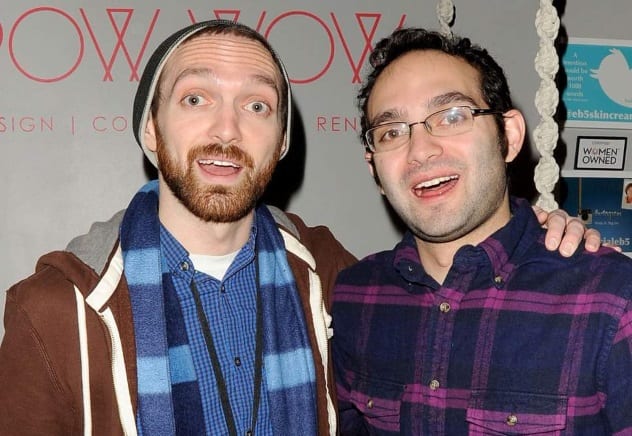
The Fine brothers, Benny and Rafi Fine, are YouTube stars famous for making reaction videos. You know, those videos where a person reacts to a video being shown to them. The Fine brothers were so successful with their reaction video channel that they decided to trademark the word “react.” This is even though people had been making reaction videos long before they started doing so.
If the brothers had been successful, they would have held the trademark to “react” and would have been able to stop other reaction video makers from calling their works “reaction videos.” In fact, they’d managed to get other reaction videos taken down for being called that. With the trademark, the brothers planned to start a franchise and license the name to other video makers for their reaction videos.
News of The Fine brothers’ trademark attempt filtered to YouTube, where it caused controversy and outrage. The brothers lost 200,000 followers and were the subjects of harsh articles rebuking their actions. The controversy forced the brothers to back down from their attempt to trademark the word in February 2016.[6]
4 Purple
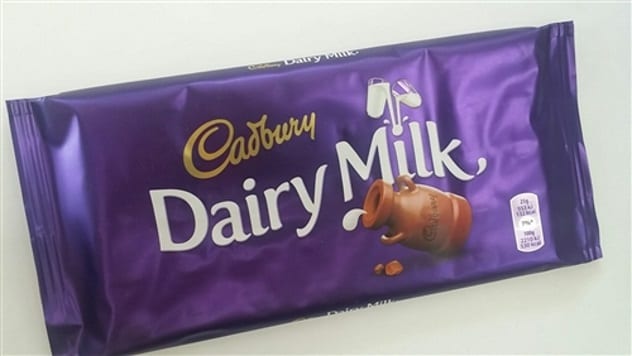
Cadbury wasn’t trying to claim all the colors that could be called “purple.” It was only interested in the Pantone 2865c purple that it uses for the wrapper of its Dairy Milk bars. Cadbury had been using the color for its wrappers since the early 20th century and was very keen on preventing competitors from using it on rival products.
Cadbury tried to trademark the color in 2008, but its attempt was thwarted by Nestle. Both went to court, where Cadbury was granted exclusive use of the color. However, Cadbury lost the color when Nestle appealed. The court mentioned that Cadbury could not trademark the color because it did not meet the requirements of what could be trademarked.[7]
3 ‘Stealth’

Leo Stoller is an infamous trademark troll. He is called a “trademark troll” due to his propensity to trademark almost anything. He claims to own trademarks for popular single words he knows are likely to net him huge sums in license fees. Two words he has claimed to have trademarks for are “google” and “stealth.”
In 2005, Stoller threatened to sue businesses using the word “stealth” in their product names and ordered them to pay for a license. He targeted large companies, including Columbia Pictures (which had a film titled Stealth), aerospace and defense corporation Northrup Grumman (which uses the name in their stealth bomber), and Pure Fishing.
Pure Fishing took Stoller to court, and things quickly went south for the latter. Realizing that he would lose the case, Stoller declared bankruptcy. The judge assessing his bankruptcy details discovered that he had filled his bankruptcy documents with lies, so he ordered the liquidation of Stoller’s business and personal assets. If that wasn’t enough, Stoller also lost all his trademark claims and was banned from applying for new trademarks.
But Stoller was not one to give up easily. In 2010, he returned to attempt to trademark “stealth,” using the name of a new bogus business, Christopher Stoller Pension and Profit Sharing Plan. The business denied any relationship with Leo Stoller, even though it agreed they shared the same office.
However, Stoller had used an e-mail containing his name to apply for the trademark. The application also claimed that the business had been using “stealth” since 1981, even though it was only founded in 2007. To complete the failed ruse, the check Stoller paid for the trademark application bounced. He application was denied.[8]
2 Fried Chicken Sandwich
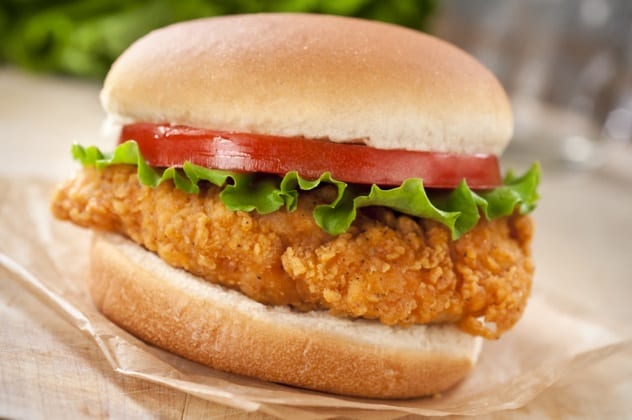
Norberto Colon Lorenzana used to work for Church’s Chicken in Puerto Rico, where he claimed he created a fried chicken sandwich recipe in 1987. He called the sandwich the “Pechu Sandwich” (which means “chicken breast sandwich”). Church’s Chicken added the Pechu Sandwich to its menu in 1991.
Years later, Norberto sued Church’s Chicken for $10 million. He claimed he owned the trademark to the sandwich recipe and sued because Church’s Chicken never paid him any royalties. The court dismissed the case in 2015 because it is impossible to trademark a recipe or cooking instruction. This means Noberto could not claim a trademark over a sandwich.
However, despite the court’s claims, other businesses have been able to trademark their recipes. They managed this by exploiting certain loopholes, though doing so tends to cost a lot of time and money.[9]
1 ‘Candy’
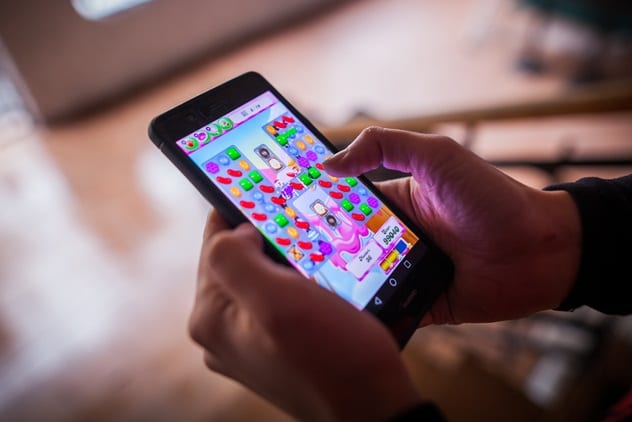
Game maker King is famous for its Candy Crush Saga game. Considering that such a popular game will inspire several ripoffs, it is not really surprising that King tried to trademark the words “candy,” “crush,” and “saga.”
King was able to trademark “candy” in the European Union but met a brick wall in the US after applying in February 2013. Other game makers resisted so hard that King just stopped trying.
At the same time, it went after game makers with “candy” in their titles and even had one pulled from the Apple app store. Other game makers found out and deliberately created games with “candy,” “crush,” and “saga” in their titles. The incident earned King negative reactions in the US, forcing it to abandon the trademark attempt. However, it bought the trademark rights to a similar name, “Candy Crusher.”[10]
For more insanity from the world of trademarks, check out 10 Absurd Trademark Claims and Top 10 Craziest Copyright Claims Ever Made.
